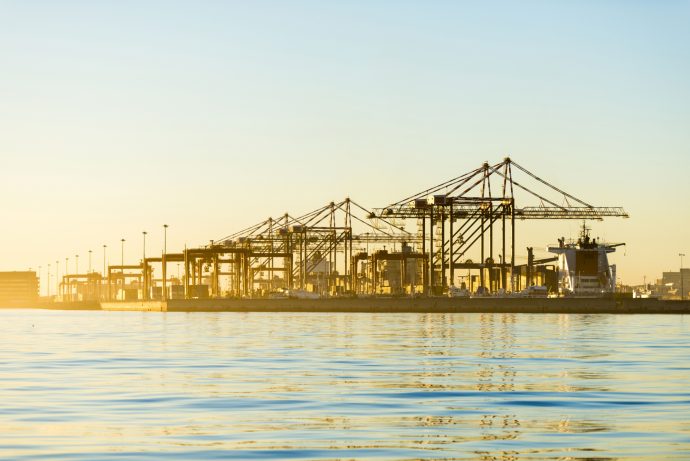Positive change is on the horizon for Africa’s maritime and logistics sectors – thanks to an alliance that encompasses the lion’s share of the region’s countries.
The world’s largest free trade agreement, the African Continental Free Trade Area (AfCFTA), is opening the way for robust economic growth. It brings together the 55 countries of the African Union and eight Regional Economic Communities. Its mandate: to create a single continental market with a population of about 1.3 billion people and a combined GDP of approximately US$ 3.4 trillion.
The AfCFTA is one of the flagship projects of Agenda 2063: The Africa We Want, the African Union’s long-term development strategy for transforming the continent into a global powerhouse. It aims to boost intra-Africa trade by eliminating barriers and is expected to help establish regional value chains, enable investment and create jobs. And the benefits it promises come from the private sector understanding, recognising and acting on its value and significance for the continent’s further development.
Upward trend
According to UNCTAD’s Review of Maritime Transport 2023 report, AfCFTA is expected to increase demand for maritime freight by 62%. The report noted that Africa was the only region in the world to show an increase in port calls by dry bulk carriers – up 2.5% in 2022 – in parallel with a 5% increase in port calls by liquid bulk carriers in the same period.
This upward trend is expected to continue over the next few years. The World Economic Forum anticipates an increase in the region’s maritime trade from 58 million tonnes in 2023 to 132 million tonnes by 2030. And that could significantly ramp up, potentially doubling the US$36.8 billion worth of goods African states currently import every year.

African countries are responding by building or expanding their port capacity to enable larger vessels to berth and more trade to flow in and out of the continent. In Nigeria, for example, operations have begun at the brand new Lekki Deep Sea Port, a US$1.5 billion facility to handle more than 2.7 million containers a year. Meanwhile, in the Ivory Coast, work is underway on a major expansion of the Port of Abidjan’s cargo handling capacity, with the construction of new container, ro-ro and general cargo berths.
In Angola, the new Luanda International Airport will enhance cargo traffic, whilst the Lobito corridor plan aims to maximise and promote trade (including dry bulk), investment and economic integration between Angola, the Democratic Republic of Congo and Zambia.
Such projects can be found throughout Africa as countries across the continent pursue greater economic opportunities through their ports. According to an outlook by PwC, Africa has traditionally lagged behind when it comes to port investment, with expansion and expenditure often not keeping pace with trade growth. But, as a result of AfCFTA, many countries now plan to build modern infrastructure to support growing demand for maritime transport, with regional players and third-party support parties expected to play a crucial role.
Investment and growth
GAC has been present in Africa for more than 45 years, starting in Lagos, Nigeria, in 1979. Since then, it has expanded its coverage through its own offices and a network of vetted and approved partners to include some of the maritime hubs in Angola, Benin, Cote d’Ivoire, Egypt, Ghana, Kenya, Namibia, Nigeria, Senegal, South Africa, Tanzania and Togo. The Group offers a range of integrated shipping, logistics and marine services including ship agency, husbandry, bunker fuels, contract and project logistics, and is a forerunner in the provision of integrated offshore support for energy projects.
“Through strategic investments in port infrastructure and a commitment to sustainable growth, Africa is charting a course towards becoming a vital hub for future global trade,” says Thomas Okbo, GAC’s Group Vice President – Europe & Africa.
“As ship agents, we understand the importance of well-developed port infrastructure in facilitating efficient maritime trade and operations.

Easing trade
In addition, several African countries are tackling trade bottlenecks, reducing costs and boosting their ports’ competitiveness by improving logistics processes and systems, streamlining customs procedures and improving their interconnected road and rail networks.
“Such efforts are making Africa an easier place to do business – and that brings growing need for GAC’s expertise and experience to support customers looking to tap into the potential of new markets,” adds Thomas.
“That’s where GAC’s decades of global and regional experience and resources can act as an active partner, providing reliable, compliant and cost-effective shipping and logistics support to help shape the continent’s future.”